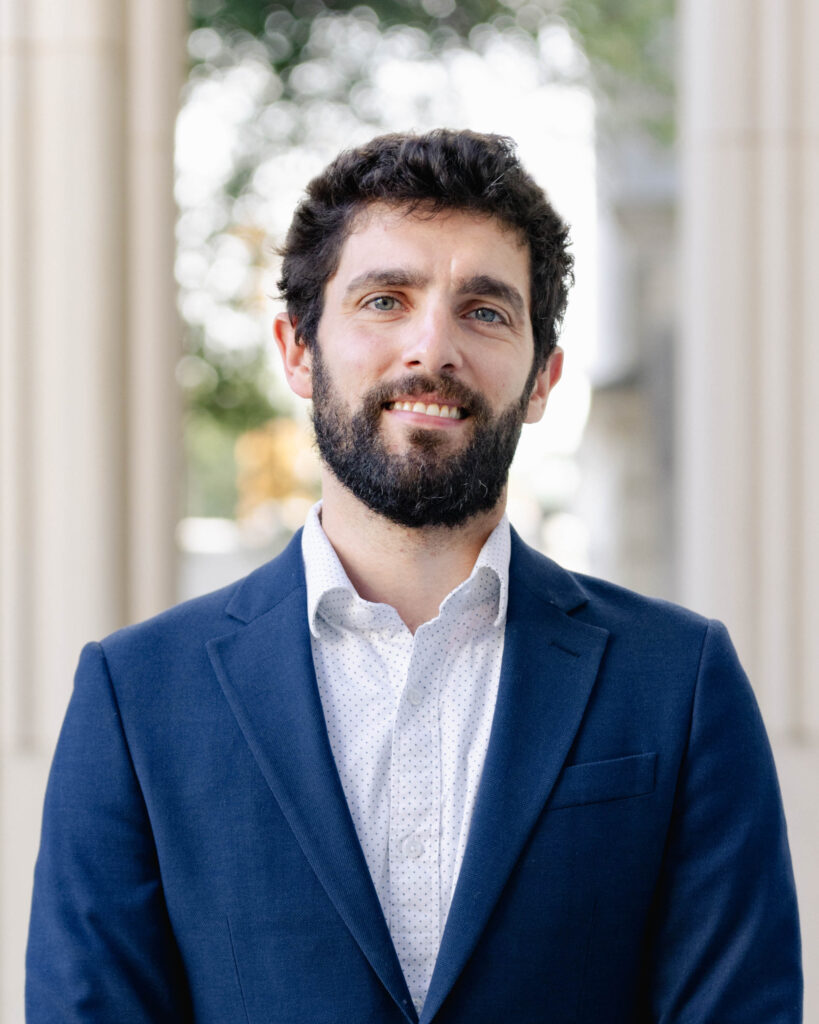It goes without saying that John Owen is an important figure of historical inquiry. Indeed, that is clear in current scholarship. What inspired you to write this book about Owen?
As a book that addresses both John Owen and contemporary scholarship on the question of Jesus’ actions, my answer to this question has a couple of different facets.
I wanted to write a book on ‘John Owen’ because I, personally, wanted to learn from Owen as something of a theological mentor. Owen’s use of Scripture and the Christian tradition toward a doxological theology has captivated me for years. While I think he’s materially wrong about a whole heap of conclusions, his dogmatic method is exemplary, in my opinion. So this book offered me an opportunity to really sit with Owen and learn from him—especially how he supported his devotionally rich conclusions from Scripture, the tradition, and other dogmatic premises.
Beyond the benefits of engaging Owen for myself, I believe that Owen can serve as a mentor for others. While he’s not perfect, I think his thought can serve to guide theologians toward greater clarity, charity, and coherence regarding God and all things in relation to God. There are many other Owen scholars who, likewise, demonstrate the usefulness of Owen’s thought. So this book joins them in articulating Owen’s theology in a way that is meaningful for contemporary conversations.
I wanted to write a book on Jesus’ actions, again, for both personal and communal reasons. Personally, I love topics that sit at the conceptual cross-streets of important roads in theology. To speak meaningfully of Jesus’ actions, we must consider who Jesus is as God and man, what it means for God to act, how God acts as Father, Son, and Holy Spirit, etc.
Communally, I was interested in this book because I perceived a lack of clarity in our language around Jesus’ actions (especially in terms of ‘agency’/’agent(s)’). I was once at an academic conference and told someone what I was working on. Their response was: ‘Obviously, Jesus acts as with singular trinitarian agency’. Within an hour I was talking to someone else, and their response was communicated in the same tone, but with a different conclusion: ‘Obviously, Jesus acts with dual-agency, divine and human’. Both of my conversation partners that day thought that the solution was obvious, and they thought that the language was prominent (even important), but they gave different answers.
Your book also engages with ‘advancements in philosophy of action’. What can you tell us about this?
Philosophy of action is a fun and illuminating field of study. Consider, for example, a version of the famous puzzle: You’re walking downstairs to raid the fridge for a midnight snack. When you flip the light switch, you find your 5-year-old son has beaten you to the freezer and is perched on top of the counter with a gallon of ice cream in his lap. The light scares your son, and he falls off the counter onto the floor, spilling the ice cream.
The question is: How many actions did you perform? Are (1) moving your hand against the wall near the switch, (2) turning on the lights, (3) scaring your son, and (4) spilling the ice cream one action or four? Based on your answer, how are you responsible for the action(s)?
Now consider all the ways that we might speak (properly or improperly) about Jesus’ actions. Can we say, ‘God died for you’, if 1 Timothy 6:16 says that God cannot die? Can we say, ‘Jesus’ obedience is an example for your Christian life’? If Jesus is infinite, isn’t that a bit inapplicable (similar to saying ‘Superman is your example for strength training’)? Or can we say, ‘God the Son willingly went to the cross’, while simultaneously saying, ‘the triune God only has one will’?
Who do you think would benefit from your book? I am thinking of the audience here.
Again, I think that there are a few categories here:
Owen scholars and people interested in the theology of John Owen will, hopefully, find close (and original) readings of Owen throughout this project. This book builds upon contributions that I sought to make in Owen scholarship through journals over the past several years, and it serves as a logical extension of that existing work.
Those interested in contemporary trinitarian theology and Christology will, hopefully, find meaningful engagement with contemporary questions.
There is also a bit of biblical-theological exegesis in this volume, so those who are interested in seeing an integrative approach to theology may benefit from this work—especially those working on Christology in Romans 5 and Hebrews 5.
Finally, I pray that everyday Christians who are willing to wade through the technical argumentation and language will find that careful contemplation of God’s work in Jesus is devotionally meaningful and pastorally encouraging.
What would you say is the main contribution of your book?
My main goal is to defend the coherence and prudence of classical and Reformed Christology by engaging with the thought of John Owen.
I say ‘coherence’ because there are seeming inconsistencies within classical and Reformed Christology that pop up the minute that you start to speak about agent(s)/agency in Jesus. I name five of the most important coherence questions to attend to:
- If you say, ‘Jesus, who is the Son, is one agent’, does that require that the Father is another ‘agent’ and the Spirit is a third ‘agent’? If you affirm three ‘agents’, are you then committed to a version of Social Trinitarianism?
- If you say, ‘Jesus, the “anointed one”’, is one agent who works by the power of the Holy Spirit (see Matt. 12:28), does this imply that the Spirit is the agent of Jesus’ actions?
- If you say, ‘Jesus, who is God the Son, is one agent and that agent “obeys,” “suffers,” “dies,” etc’, are you required to deny divine impassibility?
- If you say, ‘Jesus, who is God the Son, is one agent and that one agent’s actions are God’s actions’, do you minimize Jesus’ genuine human capacities and operations?
- If you say, ‘Jesus has genuine human capacities and executes human actions’, then do you create a kind of act-Nestorianism that divides the humanity and divinity of Christ?
I say ‘prudence’ because the purpose of studying and speaking about Jesus is so that we might be made like him in wisdom, love, and holiness. Owen said, ‘The great end of the description given of the person of Christ, is that we may love him, and thereby be transformed into his image’. So I hope that we gain more than mere conceptual clarity, but also gain a transformative and sanctifying vision of the mediator who acts on our behalf and reveals the triune God to us.
This is explicit in the project insofar as Jesus demonstrates God’s love for us; reveals God’s character to us; presents us with an example of human obedience, and is present with us as a sympathetic priest.
Are there any other projects that we can anticipate?
I’m working on a couple of projects:
Kelly M. Kapic and I are writing a book that compares Owen to different figures in the tradition as they address different topics. For example, you’ll see Owen compared to the usual suspects: Luther on justification, Edwards on perseverance, Augustine on sin; but we will also be comparing Owen with a few less-than-usual folks: Macrina the Younger on death; Lemuel Haynes on freedom. This will, hopefully, come out with Crossway next year.
Daniel Lee Hill and I are writing a book on the task of theology that seeks to highlight the importance of worship in our orientation, posture, and execution of studying God and all things in relation to God. That will, hopefully, come out with Baker Academic in 2026.
Here’s the description of the book from the website: https://www.bloomsbury.com/us/theandric-and-triune-john-owen-and-christological-agency-9780567713742/
Describing Jesus as an ‘agent’ of divine actions, or as one who possesses human ‘agency’, is commonplace in christological discussions. Yet these discussions often wade in a shallow understanding of the terms’ meanings and the theological implications of such claims. For example, while many theologians who are committed to the definition of Chalcedon consider Jesus as one agent, we might ask if this implies that the triune God comprises ‘three agents’? Or, if Christ possesses ‘singular agency’, how are his divinity and humanity operative in his actions?
In response, this work draws from the theology of John Owen and advancements in philosophy of action in order to offer an account of divine and human agency in christological action from within the Reformed tradition. It provides clarity to the christological and trinitarian uses of the language of ‘agent/agency’ in Christ and attends to the theological (especially trinitarian) entailments therein. While at first glance there may appear to be internal inconsistencies with accounts that subscribe to classical trinitarianism and Reformed christological agency, this book argues that Owen helps us recover an understanding of christological agency that is internally coherent and theologically prudent. As such, the Reformed tradition can articulate christological ‘agency’ in a way that is coherent with the testimony of Scripture, the ecumenical councils, and classical trinitarianism while contributing to contemporary theological discussions. The case not only provides terminological clarity and theological coherence, but also inclines Christians to appreciate the trinitarian love of God in Christ’s action and the human sympathy of Christ for his people.
Ty Kieser (PhD Wheaton College) is Assistant Professor of Theology and an MA Program Director at Criswell College. His research focuses on trinitarian theology, Christology, and the theology of John Owen.

